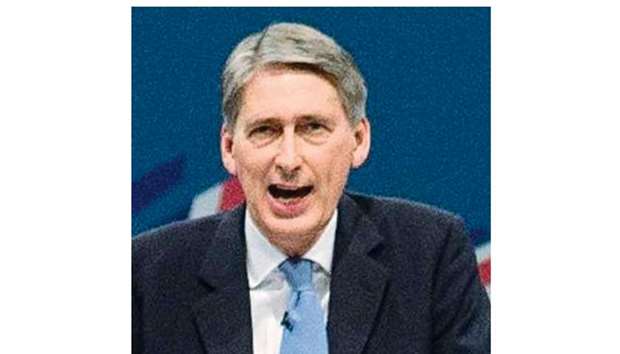A big cut in stamp duty for first-time buyers is being considered for next month’s Budget, the Standard has learned.
The plan is worth thousands of pounds to hard-working young people struggling to get on the property ladder.
It is among “bold measures” being studied by Chancellor Philip Hammond for a Budget that will aim to help people in their twenties and thirties and restore “intergenerational fairness” to the system.
Stamp duty is a massive extra cost for people trying to buy their first home, especially in London. It means a tax bill of £11,427 for the average first-time buyer in the capital, according to the Land Registry, which recorded the average price paid by new entrants to the London property market as £428,546.
Even a starter flat costing £250,000 attracts a stamp duty bill of £2,500.
Hammond is looking for ways to restore young people’s faith in the system at a time when senior ministers fear the link between working hard and getting on has been badly weakened.
Ministers say even young professionals on good money in London feel they are missing out on things their parents took for granted, including buying a home.
Cutting stamp duty is among ideas put forward by backbenchers that are being considered in detail. At the same time, No 10 is pressing Transport for London and other public bodies to release unused land for homes to be built on.
“The Budget is a good opportunity to seize the political initiative domestically through bold measures on issues like housing,” said a Tory source.
“A stamp duty cut for first-time buyers would help all those in London whose starter homes are above the threshold of £125,000.”
However, without an increase in new homes, a stamp duty cut could backfire by driving up prices. A stamp duty holiday was used by John Major to revive the market in 1992, and big cuts for young families were advocated by the Tories and picked up by Gordon Brown in 2005. However, Treasury studies have cast doubt on the benefits of cuts unless supply is also boosted.
Tory former minister David Willetts told BBC Radio 4’s Today programme: “If you are 30 now you are probably earning less than someone who was aged 30 10 years ago. Anything that rebalances and helps young people, I’d be in favour of.”
But he said tight public finances meant taxes would have to rise on older people if the young received help: “Any help you give to one part of the population does have to be offset by increases on others.”
Other Budget measures could include a boost for the AI and biotech industries, seen as sectors that can thrive after Brexit.
Hammond believes that the economy is set for a “super-surge of investment” once a deal is struck with the European Union to secure a transitional period after the UK leaves in March 2019.
A number of firms have postponed investment decisions while they wait for the dust to settle on negotiations between Britain and the EU. Once the deal is done, even if it is only a transitional arrangement, they are likely to go ahead with the investment in new plants or equipment and take on staff.
Stamp duty is charged on all homes over £125,000, which means it hits hardest in London. It is charged at 2% on the value between £125,000 and £250,000, rising to a marginal rate of 5% above £250,001, then 10% above £925,001 and 12 per cent after £1.5 million. That means the average purchase in London costing £490,000 results in a £14,000 bill. For £1mn homes, the bill is £43,000.

Hammond is looking for ways to restore young people’s faith in the system at a time when ministers fear the link between working hard and getting on has been weakened
